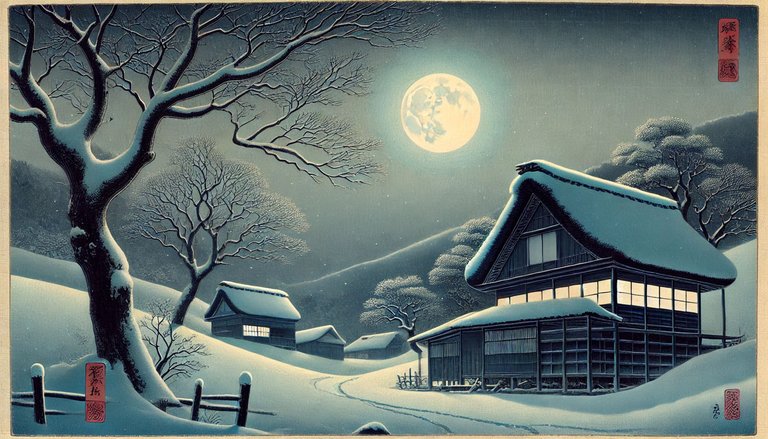a winter night
shizukana fuyuyoru


At least in Japan Autumn may be the most famous time for the nightly noises. For whatever reason, insects are especially alive and making themselves known on autumn nights. But the other seasons so have their nightly sounds too. The frogs calling out for mates in spring and the cicada buzzing all summer, among others.
But winter? It's dead silent out there. Well, I mean, except for the modern noises of cars, which it's hard to get away from unless camping in the middle of nowhere. But the sounds of the non-human life out there? Besides the occasional dog barking or cat meowing, there is almost nothing.
It's eerie in a way and lends to the feeling of winter being a dead time. Of course this is harder to pick up on in the modern world where we all lock ourselves up indoors and drown out the silence with Netflix, making a winter night not much different from a night in any other season. Yet part of us is still attuned to this and it shows up in various ways in our lives. The depression of winter, for instance, which is normally attributed almost entirely to less sunlight; the lack of the sounds of nature has also been hypothesized as being a contributing factor.
At the same time, this silence can also be peaceful, especially after an especially busy and loud day. It's still just a little unsettling when opening a window to let in some fresh air and hearing... nothing... But under the right circumstances, that can also be peaceful and relaxing. At least for awhile.
I wrote this haiku last night after the kids had been somewhat more problematic than usual, to put it mildly. Once they were finally in bed, I went in my room, opened the window to let in some air (it wasn't that cold, but even on cold nights I like to let in some fresh air), sat back and listened to the nothingness. Then wrote down that haiku.
[note: to readers of Japanese, that translation may be too plain. I was going for a Santōka style simpleness, but I may have missed in that goal.]
❦
 |
David is an American teacher and translator lost in Japan, trying to capture the beauty of this country one photo at a time and searching for the perfect haiku. He blogs here and at laspina.org. Write him on Mastodon.
|
